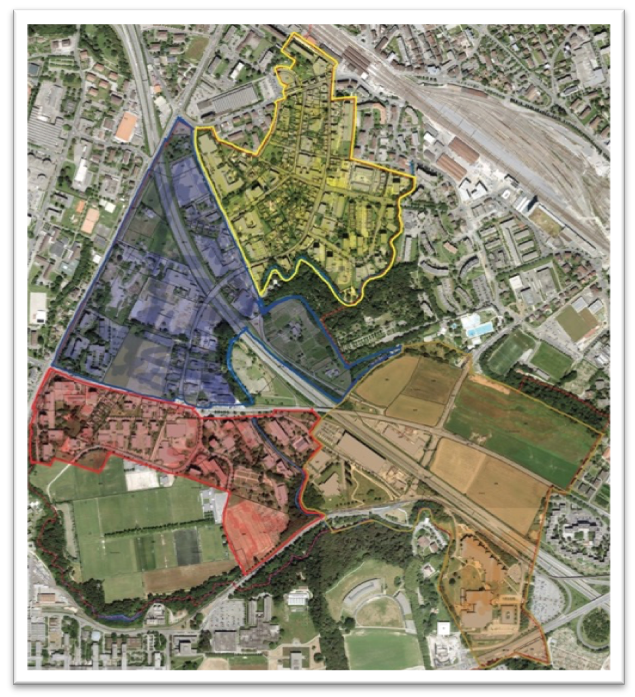Involve residents in the organization of their city. This is the heart of the "Cause Commune" project, which the LIVES Centre has been carrying out in collaboration with the City of Chavannes-près-Renens since 2019 and, since 2025, with the municipality of Prilly and the association Lavaux Patrimoine Mondial UNESCO. Indeed, if material security is essential to guarantee a good quality of life, the social environment and the possibility of being an actor in their common life are determining factors in the psychic and physical health of the population.
"Cause Commune" in a nutshell
"Cause Commune" is an action-research project initiated in 2019 for 4 years with the municipality of Chavannes-près-Renens (Canton of Vaud) and continued with the municipality of Prilly in 2025-2026. A pioneer in the field of social action, it aims to test the impact of the social environment on the health of residents and is divided into three parts:
- establish a diagnosis, in close collaboration with the communal authorities and the population.
- to develop new activities on the basis of the information collected from the population.
- issue recommendations, which may also be useful to other communes and cantons.
By participating in this project, the University of Lausanne is fulfilling one of its missions: to respond to the current challenges facing society. The "Cause Commune" approach is intrinsically sustainable, local, civic-minded and innovative. Indeed, the aim of this project is to reactivate and energise social links through the implementation of projects. The vice-rector of the University Benoît Frund, member of the steering committee, reminds us: "A society must be resilient to be able to heal itself in the event of a crisis, especially in the long term." "Cause Commune" must thus allow resources to emerge, which are as much the inhabitants as the relationships between them. The human being is at the centre of this action-research approach, which directly involves researchers, professionals and residents.
Complementary information on the "Cause Commune" project as well as its complete toolbox are available for communal authorities on www.causecommune.ch or for the public on the website of the City of Chavannes. More information on the second part of the project is also available on the websites of the municipality of Prilly and of the Association Lavaux Patrimoine Mondial UNESCO.
Targeting population groups
To ensure that community activities meet the real needs of the population, residents actively participate in defining them through discussion groups led by representatives of the Social Cohesion Service of the municipality. These meetings are organised by neighbourhood with local actors (associations, representatives of the authorities, police, etc.). During these exchange sessions, four groups share ideas and points of view about activities that could be carried out, as well as the method used:
- children (0-10 years)
- young people (11-24 years old)
- parents
- seniors (55+)
Already during the first meetings, many ideas were brought forward and discussed, such as waste management and the creation of a sports and friendly square. Emmanuelle Anex and Dario Spini, LIVES Centre researchers involved in this project, had the opportunity to present the "Cause Commune" approach, the accompanying research projects and the specific role of researchers in this approach.
An approach by neighbourhoods, by and for residents
 A questionnaire distributed to the whole of the Chavannes population was first tested by a group of residents in a participatory survey process. They were able to give their comments to the research team, who made changes to the questionnaire before starting the survey. In addition, this text was translated into 8 languages in order to take into account the diversity of the population of the municipality.
A questionnaire distributed to the whole of the Chavannes population was first tested by a group of residents in a participatory survey process. They were able to give their comments to the research team, who made changes to the questionnaire before starting the survey. In addition, this text was translated into 8 languages in order to take into account the diversity of the population of the municipality.
Fieldwork began in the north of the municipality (Blancherie district and surroundings). Working groups bringing together residents, municipal staff, researchers and social partners ensure the co-construction of reflections, resources, experience and actions. These meetings have already led to the setting up of more than 20 concrete projects for this first neighbourhood, ranging from waste management to the creation of playgrounds, the opening of community premises or the installation of fountains, demonstrating the mobilising effect of this approach.







